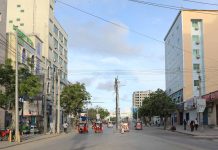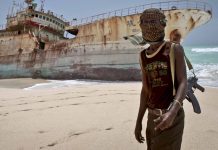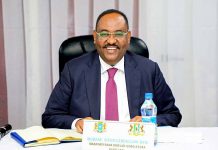MOGADISHU (Somaliguardian) – Somaliland President Abdirahman Mohamed Abdullahi Irro has declared that the self-declared republic’s government is the only authority responsible for managing its airspace, calling on all international and regional actors to engage directly with Hargeisa on aviation matters.
During an inspection visit to the Ministry of Aviation and the Airspace Management Headquarters in Hargeisa on Saturday, President Irro commended aviation officials for what he described as effective oversight of Somaliland’s skies. He announced the formation of a committee tasked with developing recommendations to strengthen control over the airspace and prevent Somalia’s federal authorities from applying their electronic visa system to the region.
The president said that, from 10 November, all flights intending to cross or land in Somaliland would require overflight permits issued by the Ministry of Aviation in Hargeisa. He added that entry into Somaliland would not be permitted through Somalia’s e-visa platform, which he said held no legal validity within the territory.
President Irro emphasised that Somaliland’s airspace, land, and sea are under the exclusive jurisdiction of its institutions, describing them as integral elements of its sovereignty and national identity. He also urged the international community, including the United Nations, the International Civil Aviation Organization (ICAO), and the International Air Transport Association (IATA), to take note of what he called growing risks to civilian aviation caused by Somalia’s interference in the management of the region’s airspace.
The move marks an escalation in the long-running dispute between Hargeisa and Mogadishu over the control of Somalia’s airspace, which has been jointly managed under international supervision since the country’s civil aviation authority was re-established. Somaliland, which unilaterally declared independence from Somalia in 1991, has yet to gain international recognition but continues to assert its authority over internal governance and infrastructure..











